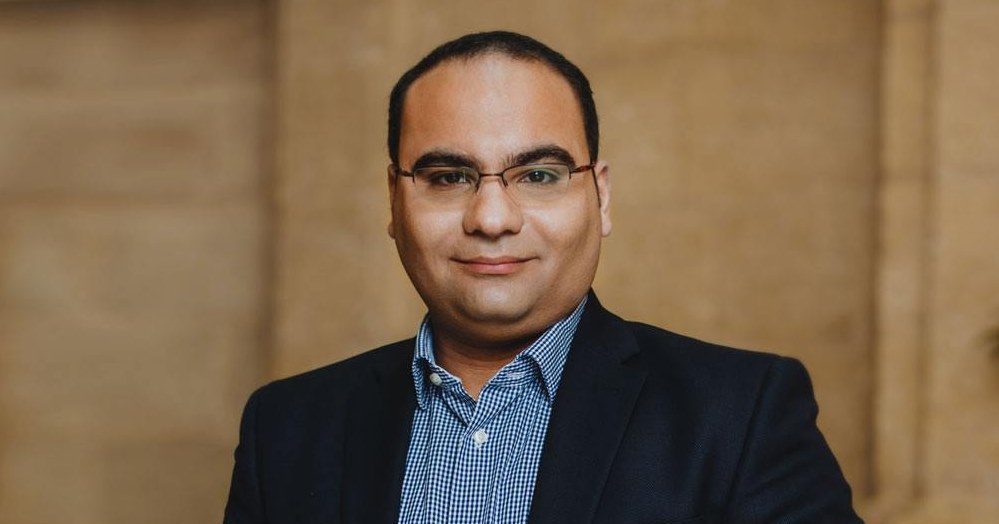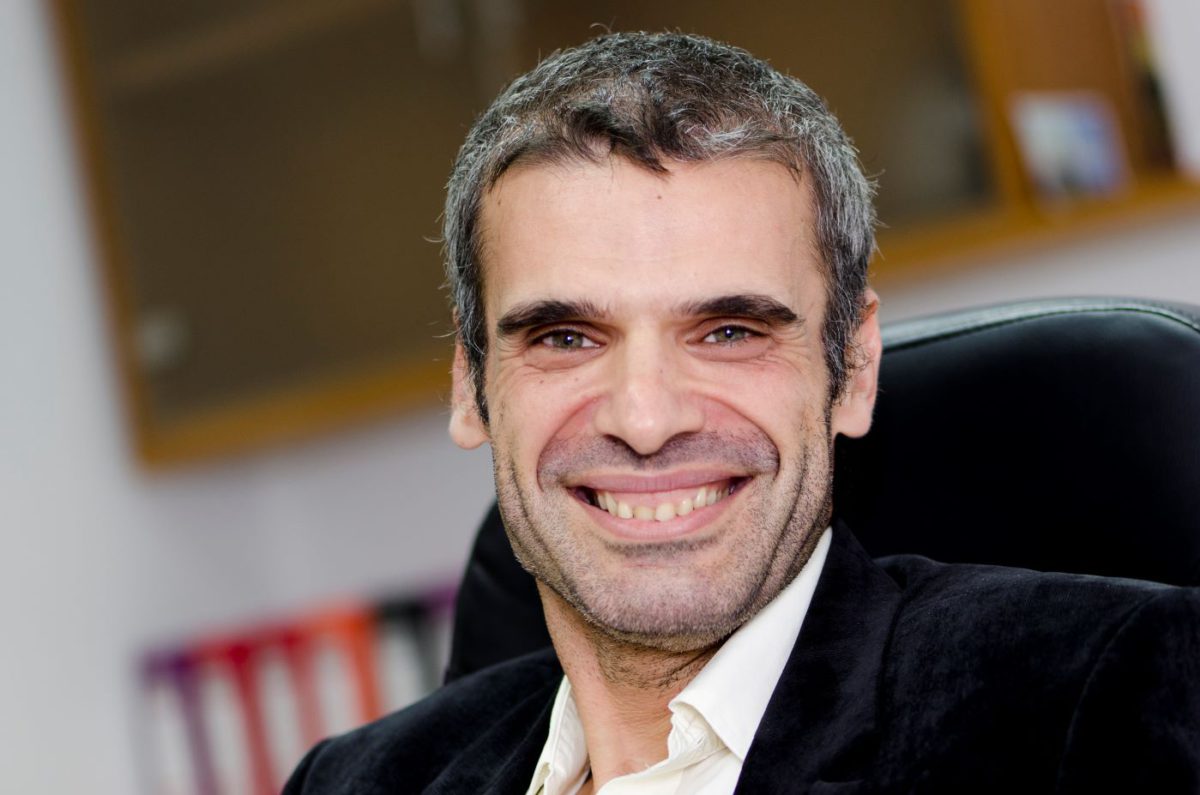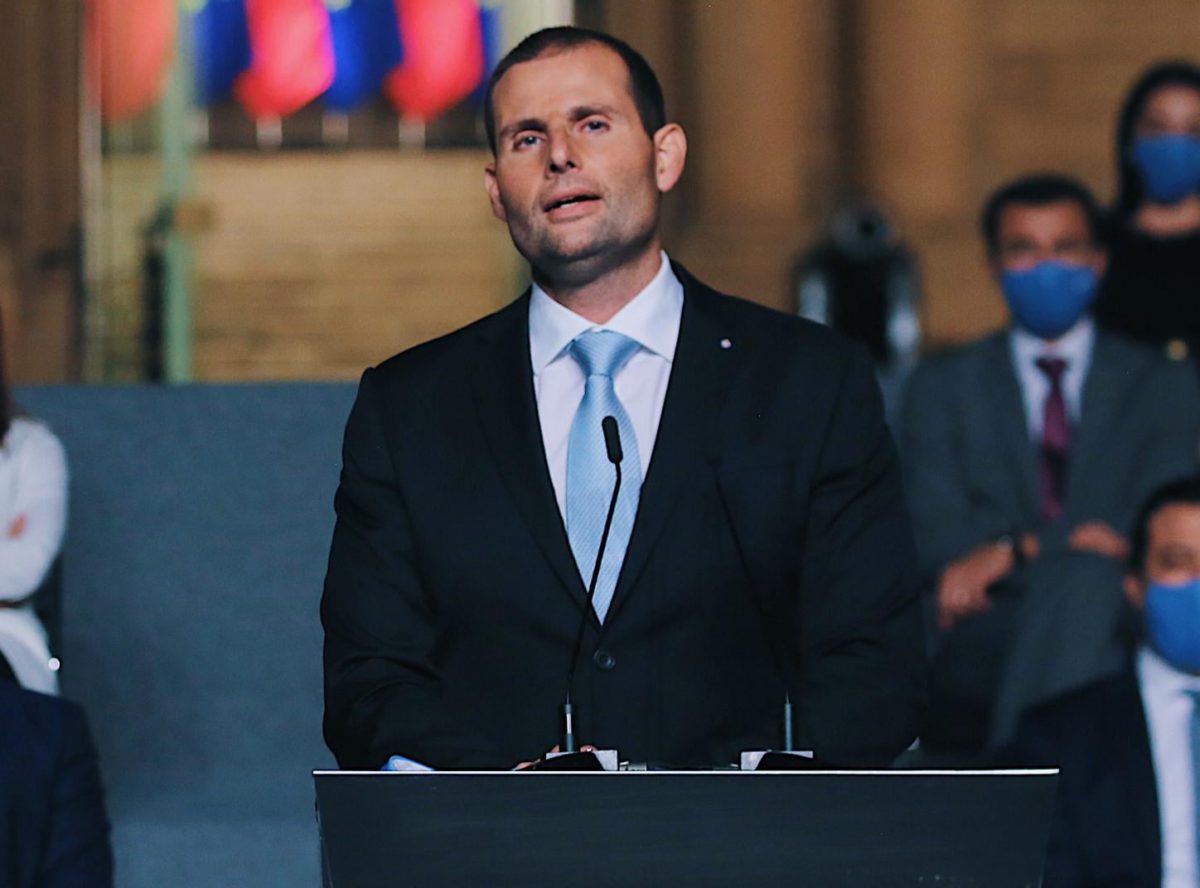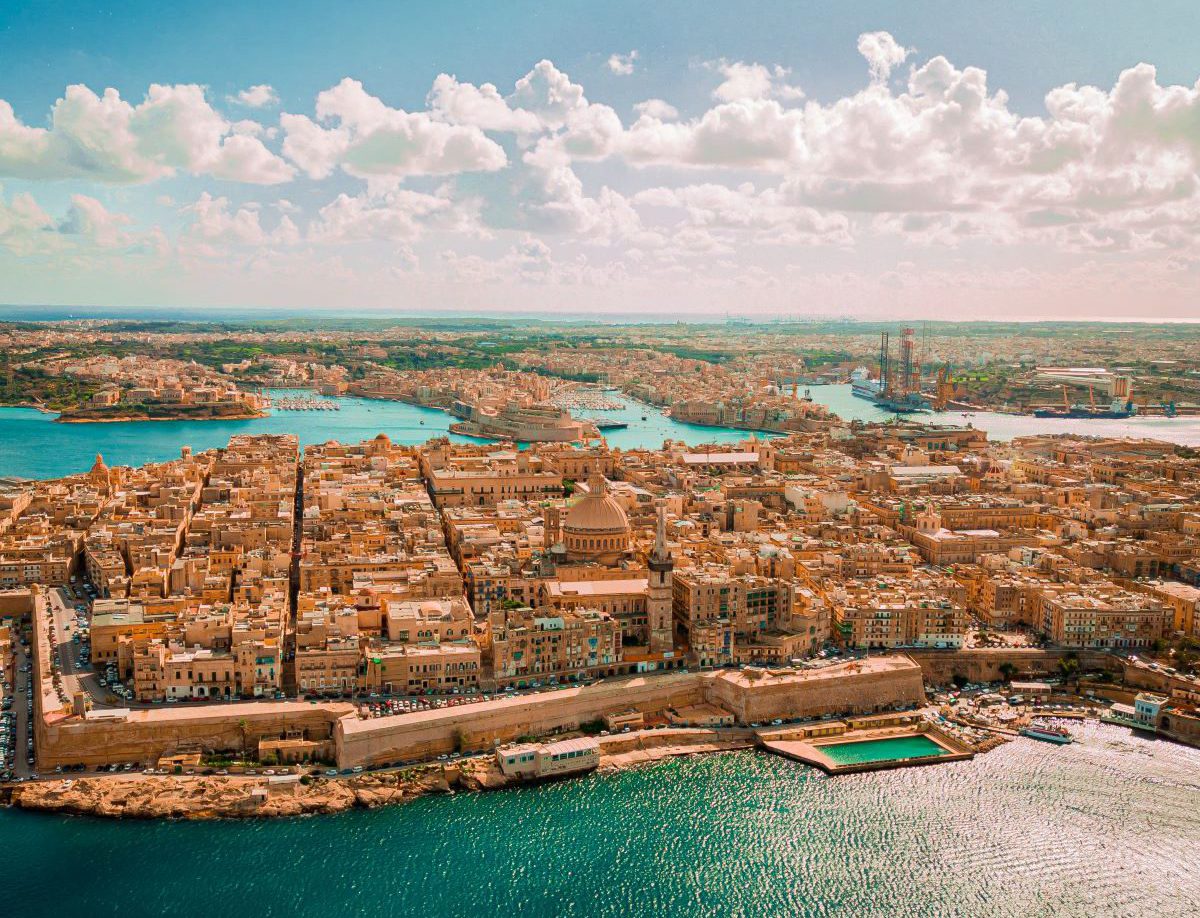The pre-COVID economy is not coming back, warned the nation’s highest officials, as they discussed how Malta’s development will need to change to keep up with the drive for digitalisation and the commitment for a green economy.
Speaking during a National Productivity Board Business Breakfast organised by the Malta Council for Economic and Social Development (MCESD), the Prime Minister, the Minister for Finance, the Chairperson of the Central Bank and others outlined the discussion that will need to take place to put Malta in a better position for the future.

Minister for Finance Clyde Caruana showed his pedigree as a University lecturer as he spoke on the difference between economic growth and economic development.
He explained that growth is the yearly increase in output, but growth happens within an economy that works, that has what it needs in terms of institutions and other variables that make economic growth possible.
On the other hand, development is explained in terms of an economy that perhaps has a certain structure in place in which goods and services are produced. However, by time that structure may become outdated, the structure itself may be no longer efficient and as a result of this the economy may lose competitiveness, labour costs increase, goods and services produced may no longer be in fashion and growth may falter.
“In this country, over the past decades, we have given a lot of importance to development,” he said, pointing to the aftermath of the riots of 1958 when Malta was still under colonial rule. “The British realised that if Malta is to thrive economically it needs to have a development plan. This development plan led to the foundation of the polytechnic and the Malta Development Corporation, key institutions that ensure the economy could generate growth thereafter, as happened in the ‘60s and ‘70s.”
Minister Caruana said that Malta’s economic development needs to be a priority issue, saying the Government will be looking at the country’s infrastructural set up, going beyond things like roads, schools and hospitals to look at the whole system that makes it possible for the economy to produce goods and services.
The key to this, he said, is investment, rather than consumption, calling it the “biggest challenge in front of us”.
“In the months to come the Government will ensure that the resources that need to be carved out for future investment will be there,” singling out investment in physical capital like premises and machinery as crucial for the economy of tomorrow.
“In order to ensure this country continues to thrive, we need to give the utmost priority to the development of human and physical capital so the economy can give good quality economy growth.”

Speaking earlier as part of a panel discussion, economist and chairperson of the board of directors of Bank of Valletta Gordon Cordina implored stakeholders to consider the micro as well as the macro level, saying that Malta is too small to leave things to chance.
“What COVID-19 is telling us is to accelerate all the recipes and cures we had been advocating before the pandemic – make tourism more niche, attracting less vulnerable, permanent workers with a high value added, move on to digitisation, move on to greening the economy.”
He pointed out that other small countries can offer the efficiency and nimble policy making that Malta offers.
“But perhaps what we can offer as a unique selling proposition is the Mediterranean lifestyle which not only attracts traditional tourism but also business which will entail offering our services as a regional hub or point of confluence where people can work, entertain themselves, heal, create and enjoy culture, be innovative – through this vision, or mission, of focusing on this unique selling proposition – which possibly this country should have been focusing on for many years and which is now coming upon us in an urgent way.
He commended Government for sustaining the productive base of Malta’s productive units and sustaining demand to keep the wheel turning, adding that “eventually however we will need to face the question of what kind of economy we want, what kind of labour force we need.”
“What population will we have? 600,000 or a million? Do we need to focus on industrial productivity because we know part of our economy will always be focused on manufacturing, or will we shift our focus on higher value added sectors? We need all entities to focus on goals which are self-reinforcing.”
“I think this is a very urgent question, we need to regroup and rethink on all the reforms that have been on the table for years.”
Dr Cordina added that we cannot expect the free market to solve our problems. “We need to have proper planning, and the courage to say that we need Government to indicate where the private sector should invest,” noting that “while other countries can afford to make mistakes – we cannot.”
Turning to talk of “pre-COVID growth rates”, he said such discourse worries him.
“If we are talking about a new economy, we need to ensure it is a reality that there is a new economy – more green, more digital, more sustainable.”
Stefano Mallia, president of the European Employers Group, agreed, saying that foresight is becoming more and more important, with this importance also recognised on a European level through the Commissioner for Foresight
He said the twin transition to a digital and green economy is paramount, also in terms of the global economy.
“On the global stage,” he said, “there’s a race between the EU, the US and China. It is clear that whoever comes up with the most sustainable and profitable green model is going to lead the world, because whoever establishes this model , the others will establish it as well.”
“As the EU, it is imperative that we are the forefront of this drive,” he said, adding that Malta also needs to be carrying out the required investments, such as in the establishment of a competitive and ambitious industrial policy.

Prime Minister Robert Abela said that the pandemic was the ultimate test of the Maltese economy, and it proved that Malta’s economic operators, with some help from Government, can survive and adapt in the most difficult conditions.
Addressing the digital revolution, the Prime Minister said that the pandemic also opened Malta’s eyes to the “incredible opportunities” of the digitalisation of the economy.
“Firms that operated in the digital world were unaffected by the pandemic and in some cases registered significant growth,” he said, “and our post COVID-19 strategy needs to focus on driving further the changes we have seen in recent months.”
Noting that successful digitalisation would enable Malta to service demand far beyond its shores, he said that investment is needed, not only in the workforce, but also in building the right digital infrastructure and changing business processes and reengineering operations.
He mentioned the example of teleworking, which through the pandemic was shown to be an effective way for firms to operate, making the location of workers even less important. He expressed his hope that this would alleviate the barrier to further growth presented by a lack of skilled workers.
Turning to the green transition, he said that Malta’s need to revolutionise society to become carbon neutral presents our economy with a plethora of opportunities.
He singled out energy, water, waste management, transport, agriculture and construction as sectors that will need to operate differently, saying that these “revolutions” can be complementary.
Calling for a collective effort, he said the MCESD is proving to be an ideal forum for such collaboration, all the more important because “we can only achieve this if we work together as team Malta”.
255 third-country nationals ordered to leave Malta in first quarter of 2025
Returns across EU rise, but Malta’s numbers remain modest
Inbound sea tourism dips by 2.3% in early 2025
The overall outlook for Malta’s tourism sector still remains optimistic
Transport Malta tight-lipped on enforcement plans for white taxis and coaches
Uncertainty also remains over the technology used and how enforcement will be applied






